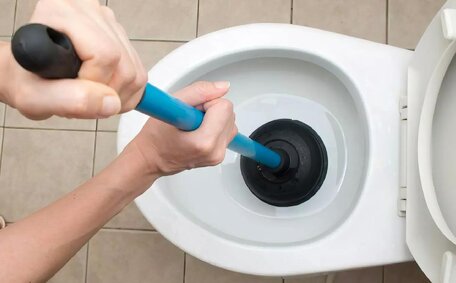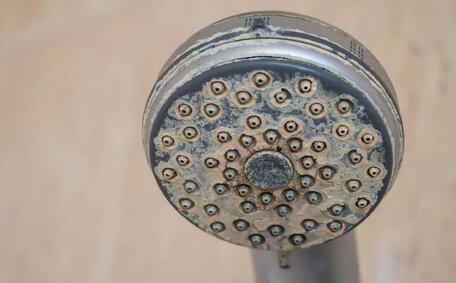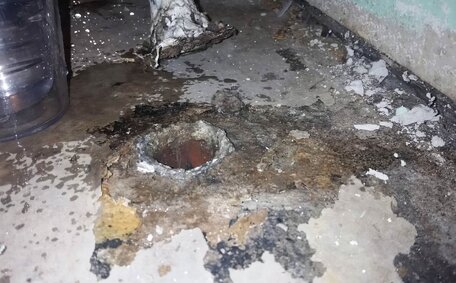Identifying Household Chemicals that can Damage Pipes
Pouring common household chemicals down drains or toilets can corrode plumbing systems or cause damage. Substances that should never be washed down the drain include:
- Drain cleaners - These contain potent chemicals like sodium hydroxide or sulfuric acid which can eat away at pipes.
- Oven cleaners - Contain caustic substances that react with water to produce heat and gases that can rupture pipes.
- Toilet bowl cleaners - Often have hydrochloric acid which corrodes metal and plastic pipes and fittings.
- Paint thinners and strippers - Contain solvents that can melt glues and compounds holding pipes together.
- Pesticides, herbicides, fertilisers - Some hazardous substances can leave toxic chemical residues inside pipes.
- Motor oil and grease - Will coat pipe interiors, causing blockages.
Safely managing hazardous substances begins with identifying these chemicals in your home. Always check product labels for warnings and use protective gear when handling; Never dispose of these substances by pouring them down any indoor or outdoor drains. For expert advice on waste disposal items such as domestic refuse, check your local council.
Storing Hazardous Chemicals Properly
Storing hazardous household chemicals safely is essential to prevent leaks, spills, and damage to pipes or the environment. Observe proper protocols when you store hazardous chemicals in your home:
- Avoid transferring chemicals to unlabelled containers; keep them in their original packaging to prevent confusion and accidents.
- Regularly check your household waste containers for damage, rust or leaks - and replace any degraded ones immediately.
- Store chemicals out reach of young children and pets, preferably in a locked cabinet or shed.
- To avoid dangerous reactions, store each chemical product, such as flammables and oxidizers, separately and carefully.
- Ensure adequate ventilation in storage areas to prevent build up of toxic fumes.
- Never store waste chemicals for extended periods - find out from your local council the proper disposal methods.
- Clean up any spills immediately according to chemical safety directions.
- Verify any home storage quantity limits for hazardous materials through local regulations.
Correct disposal of your solid waste materials greatly reduces health risks, pipe damage, and environmental impact. Contact your local council about safe ways to dispose of chemical wastes.
Handling Household Chemicals Safely
To protect human health, your home, and the environment, adhere to these guidelines for safe handling of hazardous household chemicals:
- Wear protective gear including gloves, clothing, goggles, and masks when handling chemicals.
- Ensure you work in a well-ventilated area, away from ignition sources, with windows open and fans operating to extract fumes.
- Avoid eating, drinking, or smoking while handling hazardous materials to prevent ingestion of harmful substances.
- Read all safety warnings and directions carefully before opening containers or using chemicals.
- Never mix chemicals arbitrarily - only combine what product labels specify.
- Keep a mobile phone nearby for spills so you can call emergency services; they can provide more information for your specific situation.
- Clean up any chemical leaks or spills completely according to product safety directions.
- Store and use your waste can of chemicals off your ground level, out of reach of children and pets - ideally in locked cabinets to minimise potential dangers.
- Avoid placing chemicals into containers intended for food or beverages.
- Learn first aid to treat chemical burns or poisoning, and seek medical help urgently if issues arise.
Taking safety precautions when handling dangerous household chemicals prevents accidents and reduces risks of personal harm or property damage from fumes, spills, fires or explosions.
Local Resources for Safe Chemical Disposal
Proper disposal of household chemicals results in positive environmental benefits by preventing pollution and safeguarding local waterways. Contact Emu Plains Council, in line with Sustainability Victoria guidelines, to utilise safe local disposal options for hazardous wastes like:
- Council chemical cleanout days accept various items including fluorescent tubes, ensuring they’re responsibly handled and processed.
- If your kerbside collection may not accept hazardous products, locate your nearest points where hazardous waste can be dropped off at household hazardous waste facilities that are open weekly.
- Business waste services - Like other automotive/commercial operators, some accept residential chemical waste.
Before disposal, correctly identify all substances and transport them in leak-proof containers. Ensure lids are tight and chemicals won’t spill or react. Check facility rules on certain types hazardous waste they can accept and any quantity limits.
Correct disposal of dangerous goods mitigates risks to your family and combats pollution. Our Emu Plains community takes stewardship over local land seriously - so please use Council resources to dispose of chemicals safely.
Emergency Response for Chemical Spills
In the event of a chemical spill, which can be extremely hazardous, prompt action is crucial. Should a toxic substance spill occur, you might wonder 'How do I properly dispose of it safely?' Follow these emergency response steps in your home:
- In case of a spill, immediately evacuate the area and seek fresh air if fumes are strong.
- Contact emergency services by calling 000 if symptoms like breathing difficulties or skin irritation occur.
- Phone the NSW Environment Protection Authority spill hotline on 131 555 for expert clean-up advice tailored to the exact substance.
- If safe to do so while awaiting help, contain any liquid spills by damming the area with sandbags or towels. Try to prevent contamination of stormwater drains.
- Follow safety precautions like wearing gloves, goggles and a mask. Avoid direct contact with skin, inhaling fumes or walking through spills.
- When poisoned by a substance, immediately remove contaminated clothing, using a safety shower if accessible.
- Clearly communicate critical details to emergency services, like the type and quantity of hazardous material spilled and specific location.
- Do not hose spills away or use any cleaning chemicals without official guidance to avoid worsening contamination issues.
- Serious spills may require excavation of soil or pipe repairs. Get qualified assistance to prevent environmental harm or property damage.
Being prepared to respond appropriately can help greatly reduce risks from a dangerous chemical spill. Ensure your household chemicals are stored safely at all times.
Environmental Impact of Improper Chemical Disposal
Disposing of hazardous waste down the drain can result in long-term environmental damage, especially to local waterways. Substances like paint thinners, pesticides, motor oils and drain cleaners contain toxic compounds that do not break down naturally and should never be sent down drain systems or dumped illegally.
These perilous household waste chemicals can enter the stormwater system during rainstorms, travelling untreated to creeks, rivers, and ultimately into Sydney Harbour. Toxic contamination can cause serious harm to delicate aquatic ecosystems, reducing water quality and accumulating in sediments over time.
Wildlife such as fish, frogs, platypuses and birds can experience reproductive issues, physical deformities, behavioural changes and even death when exposed. Many compounds bioaccumulate up the food chain, risking larger predator species too.
Contaminated waterways also pose major health risks to humans if used recreationally or as drinking water supplies downstream. Chemicals like heavy metals, solvents and pesticides have been linked to cancers, organ damage, birth defects and hormone disruption when consumed.
The Nepean River borders Emu Plains’ western edge, flowing into the Hawkesbury River along with its network of creeks and tributaries. Improperly disposed chemicals from our homes could directly damage these precious local aquifers and the wildlife relying on them.
Preventing hazardous substances from entering stormwater is crucial to avoid short and long-term ecological impacts. Refer to Council guidelines and use sanctioned disposal methods such as chemical cleanout events. Keep our community healthy and our waterways pristine for future generations.
Alternatives to Hazardous Chemical Pipe Cleaners
There are many safer, eco-friendly alternatives to commercial chemical pipe cleaners which can damage plumbing and pollute waterways:
- Opt for enzymatic drain cleaners, which decompose organic blockages without corroding pipes, rather than caustic solutions.
- Try a physical drain snake before resorting to chemical products - it’s great for dislodging hair and soap scum clogs.
- For minor cleaning, pour boiling water down sinks to dissolve fat and grime.
- Use a plunger vigorously to dislodge obstructions - it creates pressure that can push clogs through.
- Mix 1 cup baking soda with 1 cup vinegar - the fizzing reaction helps dissolve matter. Flush with boiling water after 30 minutes.
- Use borax or tea tree oil-based cleaning products to spot treat mould instead of bleach to avoid toxic effects.
Regular light cleaning also helps prevent buildup that requires heavy-duty chemicals. Start with natural solutions first before gradually trying commercial options while avoiding environmental harm.
Signs of Pipe Damage from Chemicals
There are several clear signs your pipes may be getting damaged by corrosive household chemicals:
- Reduced water pressure from chemical erosion, which causes leaks and blockages, impedes normal flow.
- Discoloured or rusty water - Chemical reactions corrode metal pipes, releasing sediment.
- Unusual smells from gases or fumes indicate chemicals are degrading the materials.
- Gurgling sounds - Air pockets form as chemicals pit and perforate pipe interiors.
- Higher utility bills - Water leakage downstream of unseen chemical damage.
- Visible corrosion around drains or joints - Green/blue copper chloride deposits or bubbling paint.
If you notice any symptoms of possible chemical corrosion, arrange an inspection by our licenced Emu Plains plumbers. We can assess damage, perform leak detection tests and advise you on pipe replacement options if needed while preventing further structural or environmental issues.
Safe Disposal Facilities Near You
There are several options available for safely disposing of hazardous household chemicals in the Emu Plains area:
Council Chemical CleanOut Days
Emu Plains Council schedules regular chemical cleanout days for safe disposal, aiding Emu Plains residents. Upcoming dates and locations are posted on the Council website.
Permanent Household Hazardous Waste Facilities
Permanent household hazardous waste facilities are available in suburbs around Emu Plains for weekly chemical waste drop-offs:
- The Penrith Resource Recovery Centre in Jamisontown, a leader in resource recovery, is open daily to facilitate easy disposal.
- Bligh Park Waste Management Facility, at the corner of Glossop and Lawson Streets, is open on Fridays and weekends.
For details on disposing hazardous household waste, consult the Emu Plains Council website for up-to-date hours and an extensive list of accepted items.
Automotive and Commercial Chemical Disposal
Certain materials, such as paint thinners and oils, can be recycled; check with local automotive shops and commercial facilities regarding their policies on accepting such items. Contact them regarding their disposal policies first.
Ensure chemicals are correctly identified and secured before transportation for disposal. Utilising our local waste facilities reduces pollution risks and keeps Emu Plains natural habitats clean.






